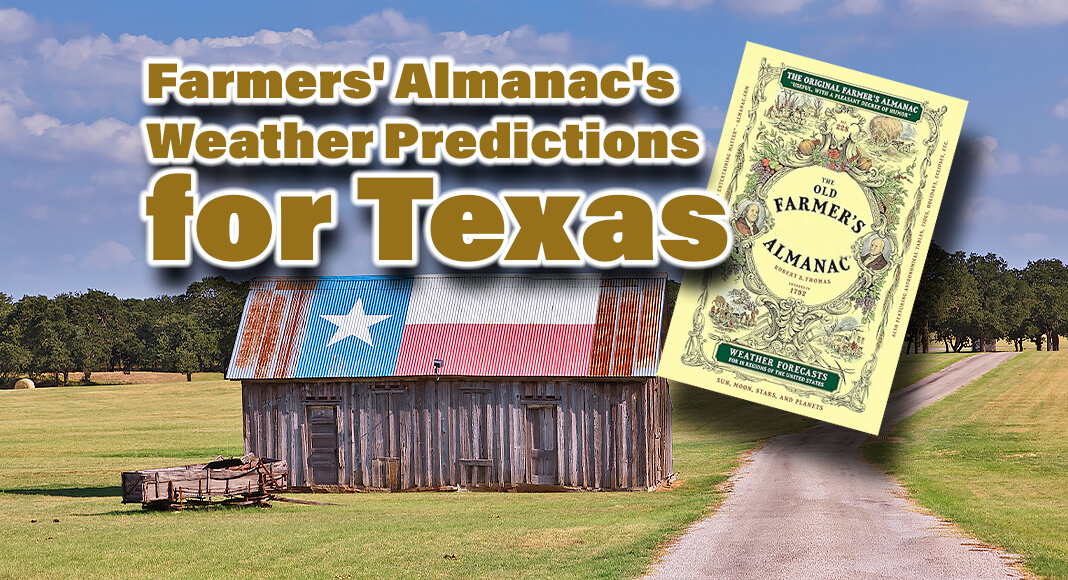
Texas Border Business
Staff
As spring approaches, Texans are keenly watching the weather forecasts, especially with the Farmers’ Almanac’s latest prediction of a cooler, wetter season ahead. Known for its long-standing tradition of forecasting North American weather patterns, the Farmers’ Almanac has been a go-to source for over 200 years.
This year, it suggests that Texas will face below-normal temperatures and average to above-normal precipitation starting from the spring equinox on March 19. This forecast starkly contrasts the national outlook, which leans towards warmer temperatures and less rain. The equinox is an astronomical event in which the plane of Earth’s equator passes through the center of the Sun, making day and night of approximately equal length all over the planet. It occurs twice a year, marking the start of spring and autumn.
The almanac’s predictions continue to be a topic of interest, especially when unusual weather patterns, such as an “unseasonably cold” winter, are predicted.
The Climate Prediction Center is currently forecasting below-normal temperatures and precipitation near the Rio Grande in the short term, aligning more closely with scientific predictions than almanac forecasts.
The methodology behind the Farmers’ Almanac’s forecasts, based on a formula from its original editor David Young in 1818, involves astronomical and mathematical calculations. The exact formula remains a secret, incorporating factors like sunspot activity, planetary positions, and tidal actions.
While the Farmers’ Almanac provides an interesting perspective on potential weather patterns, meteorologists encourage a focus on current climate conditions for the most accurate forecasts.
Report contributed by Nate Chute, American-Statesman News Producer, sheds light on the contrasting views and methodologies in predicting Texas’ ever-changing weather, highlighting the blend of tradition and science in the quest to understand our environment.















